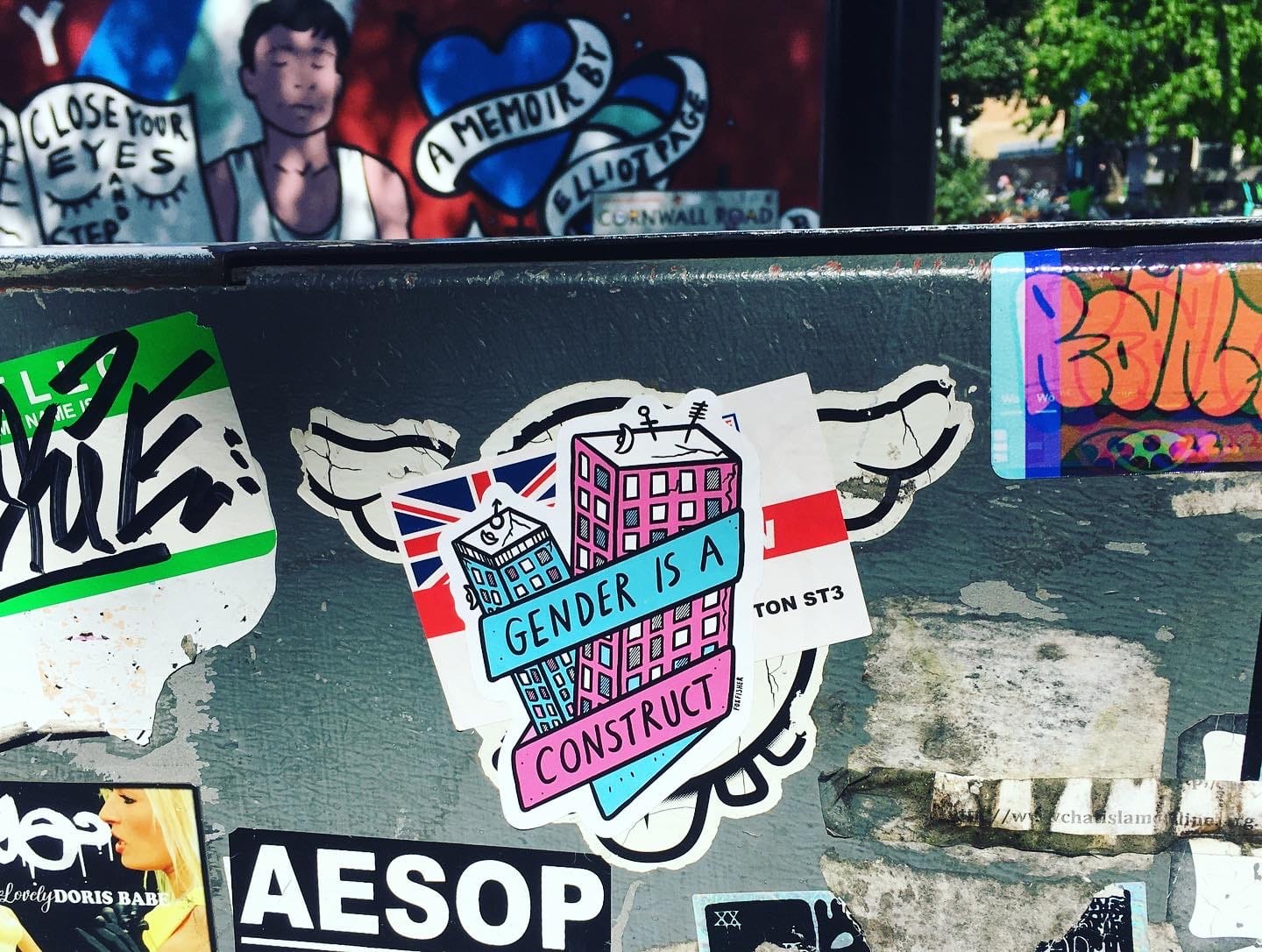Cis people don't get to decide that 'girlies' is gender neutral
On excavating language from its cultural baggage.

If you call me ‘girl’, you are misgendering me. Even if you specify that you’re using it gender neutrally.
‘Girl’ is a gendered term. ‘Guy’ is also a gendered term, though – because we live in a patriarchal society – it’s often colloquially used in a more gender neutral way. Before I realised I was trans, I hated it when people used ‘guys’ to refer to a group that included me. I was uncomfortable with how it assumed that masculinity was the default, uncomfortable with the inherent double standard in how ‘girls’ wasn’t used in the same way.
Nowadays, I’m comfortable with people including me in ‘guys’. I am a guy. But having realised I’m one doesn’t mean I see the term as gender neutral; I still disagree with how it’s used to encompass people of all genders when it feels to many like a gendered term that doesn’t fit them. How its use reinforces the idea that male is the norm.
I understand the desire to push back against this. I understand wanting to highlight the misogyny (and, indeed, homophobia) in how cis men in particular wouldn’t be comfortable with a gendered word usually associated with women being used to describe them.
I understand all of this, but I don’t think you can claim that ‘girlies’ is gender neutral.
Has anyone else noticed this? As a trans person, I wonder if I’m hyper aware of gendered language in a way that cis people aren’t. Recently, I’ve seen people using “girls (gender neutral)” and “girlies (gender neutral)” in posts on social media. And honestly? I hate it.
This is where I need to acknowledge that yes, all of this might make it sound like my masculinity is incredibly fragile. I’ve spent far longer than I’d care to admit worrying that I’m being far too sensitive about this and I should be ok with being included in ‘girls’. Ultimately, though, I live in a society that is actively telling me that I’m not a man (though also that I might look too much like one to use the women’s bathroom). It isn’t misogynistic to want to decide for myself if a word makes me feel dysphoric.
And cis women insisting that they’re using ‘girls’ in a gender neutral way makes me feel like I’m supposed to be ok with it being used to describe me.
It wasn’t until I thought about the reverse situation that I stopped worrying that I was making a fuss about nothing. I – and, hopefully, you – would never tell a trans woman that they had to be comfortable with me using ‘guys’ to describe them… even if I specified that I was using it in a gender neutral way. It’s a gendered term, and some trans femme and non-binary people would feel misgendered by it.
Of course, there are trans women who wouldn’t care if you refer to them as ‘guys’. There will also be plenty of trans man and trans masculine people who are totally fine with being included in ‘girlies’. There are trans and non-binary people who will enjoy playing with gender-fluidity and gender-fuckery of ‘girls’ as gender neutral. In fact, when I mentioned to a friend that I might be writing about this, they told me that they’ve recently started using ‘girl’ in a gender neutral way – though, crucially, what they’re doing is expanding the definition of ‘girl’ to include them and their girlfriend.
Language doesn’t exist in a vacuum. It comes buried beneath layers of meaning, laden with cultural baggage that’s hard to shake off. And that context matters, especially when it comes to who gets to decide that we’re going to deliberately disregard a word’s baggage and change how it’s used.
Take ‘slut’ – a term reclaimed by some people, but one that not everyone finds empowering. I have definitely described myself as a slut in the past1, but I wouldn’t use it to describe anyone else who if I didn’t know they would be comfortable with it. While there’s nothing wrong with being a slut, it’s still a term heaped with judgement and sexual shame. I can’t describe a group of people as ‘sluts (no shame)’ or ‘sluts (not sexual)’ and expect that those two little words are enough for people to detach it from its societal baggage.
‘Girlies’ is a gendered term; merely adding ‘gender neutral’ doesn’t make it gender neutral. You don’t need to stop using ‘girls’ or ‘girlies’, but I think we should try to stop assuming that people are comfortable with gendered language. (If I’m honest, I think we should try to stop assuming people’s genders, full stop.)
A few years ago, before I knew I was trans, I went to an event for people with vaginismus. It was advertised as being queer- and trans-inclusive, but several of the speakers addressed the audience as ‘ladies’. At the time, I didn’t understand why it made me so uncomfortable – I was still several months from breaking down mid-sex and crying in my girlfriend’s arms as I finally gave myself permission to admit just how much I wanted transness. With hindsight, I understand that my discomfort was dysphoria.
We live in a patriarchal society where masculinity is considered the default, but also a cisnormative one where being cisgender is seen as the norm. In deviating from it, trans people face an uphill battle against a world in which so many actions, words, and expectations are heavily gendered – and our choices to embrace, deny, or redefine the gendered baggage associated with them are doubly scrutinised for signs that we are lying about who we are.
Trans people spend so much energy trying to get the world to see us as we are, unpicking the ways that we have all been taught to think about gender. Removing the gendered baggage that’s attached to almost every aspect of life takes a lot more blood, sweat, and tears than just telling cis people that those things aren’t gendered.
So you’re allowed to use 'girls', but cis people don’t get to decide that it’s gender-neutral.
1 I do, however, view it as a gendered word, and it's largely fallen out of my vocabulary since stepping into my gender because I no longer feel is mine to reclaim.
Thank you for reading this piece! You can subscribe for free to get access to monthly cruising the internet round-ups, curated to encourage readers to think more deeply about gender. I've also turned on paid subscriptions, so you can support queer journalism and help me introduce more in-depth writing and interviews to Genderbent over the next few months.

